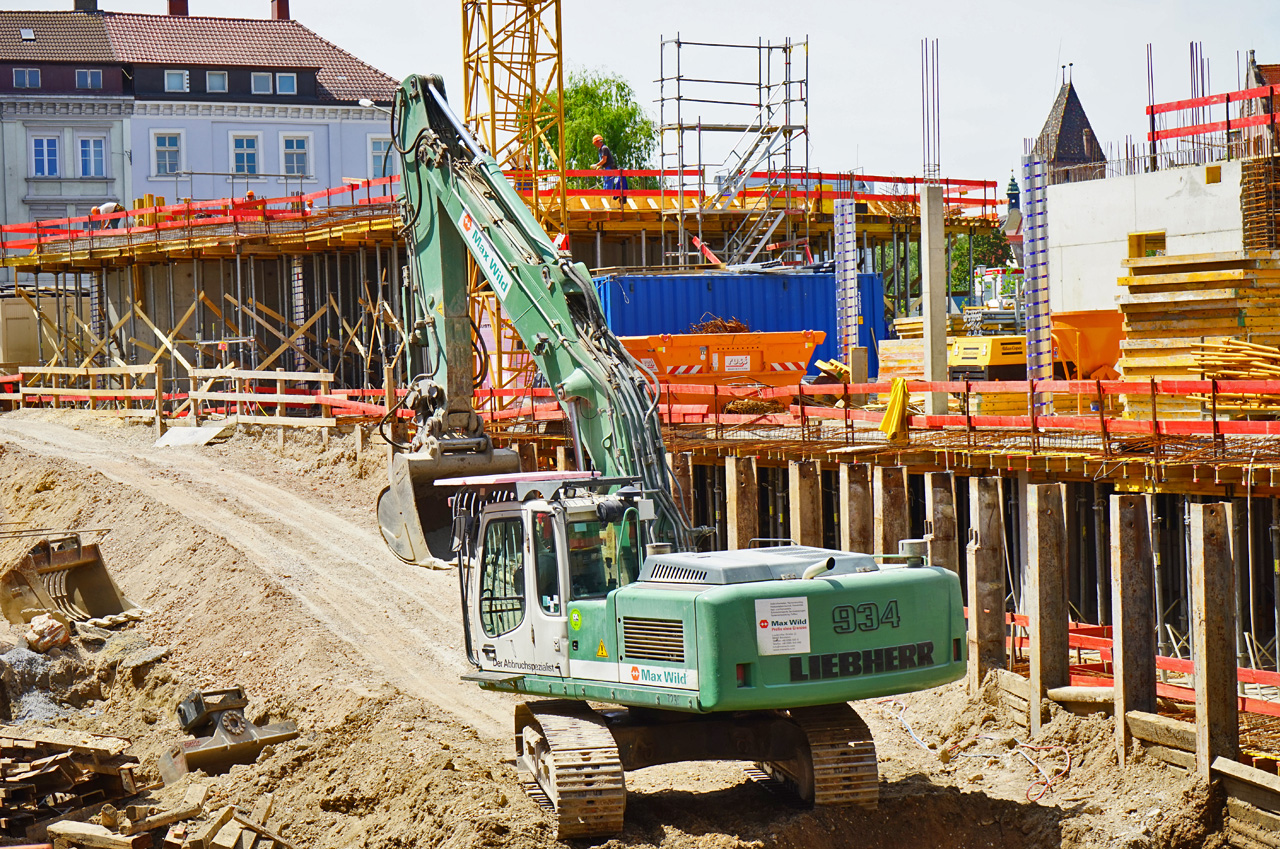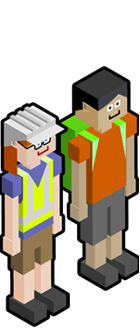
- Geology Career Pathways
- Careers
- Career Profiles
- Engineering Geologist

Geologist

Wesley
Job title: Engineering Geologist
What does an Engineering Geologist do?
In the most basic terms the role of an engineering geologist is to determine the strength properties of the ground beneath us in order to predict how it will react when a load is added to it or material is excavated from it. This ranges from anything between hand digging to 1.20m depth beside a house in order to measure the foundation thickness to using an 8 ton rig to drill 200m to determine ground strength and stability for a nuclear reactor. In addition to this we also determine the chemical properties of the ground for contamination from such substances and materials as hydrocarbons, hazardous waste and asbestos. Roles can range from predominantly sitework to more office-based which involves data analysis and technical reporting
What qualifications and previous work experience did you need to get your job?
I studied BSc Geology at University of Leeds; after I graduated I then obtained an MSc in Engineering Geology from Newcastle University. Ironically, I actively avoided choosing the engineering geology module during my 3rd year of university as I assumed the maths would be too difficult. It was then a steep learning curve during my MSc where the general expectation was that everyone had either an engineering related degree or an A level in maths (I have since improved over the years but at this time my highest maths qualification was a GCSE in it). Although I had no relevant work experience before this role, I was got call backs from 4 different companies with 3 of them offering me jobs even before I had even completed my MSc! It’s interesting to note that the one company that turned me down did so because I scored well in all their tests apart from one; maths!
What other skills or characteristics do you need in your job?
Having a sense of humour helps, especially when it’s 4pm on a Friday, has not stopped raining all day on site and you hear the words “could you just…”. As well as this you learn to accept that no matter how much time and preparation goes into everything, something will inevitably go wrong, even if it’s not your fault. A classic example was one of the first jobs I ever went on which involved digging some machine dug pits in a gated park; I spent days planning for every possibility and was told that upon arrival the park would be locked and we had to pick up a key. What I had not planned for was to collect the key and turn up to the park to find it was actually a combination lock of which the site contact did not know the combination which resulted in us having to bolt cut the gate open and buy a brand new lock once the sitework was complete.
What sort of organisation do you work for? Where else could you work as an Engineering Geologist?
I work for Structural Soils Ltd which is a contracting company that is currently involved with a lot of major UK construction projects such as HS2, Lower Thames Crossing and multiple power stations such as Bradwell and Sizewell. A lot of engineering geologists started their careers in Australia with more of a focus on mining. Although the industry suffered a crash a few years back causing a lot of mine closures, it’s starting to pick up again. The other option is to start in the consultancy industry which focusses more on the data received from the contractor to pass onto the main client for the project at hand.
What do you enjoy about your job?
Every now and then you get surreal moments when you stop and think how amazing it is that you’re the first human ever to see the particular soil or rock that’s just been drilled from the ground or get an odd feeling knowing you’re holding a piece of rock that’s over 600 million years old. It’s also an immediate conversation starter; someone asks what you do and you reply with something well-known like teacher, IT or nurse and it’s usually met with a polite “Oh, ok”. You reply with “I’m an engineering geologist” the chances are the person that asked has never heard of it before and is interested to hear more. However over the years I have found those that don’t will usually reply with “geology rocks” or “you get paid to play around in dirt”? Regardless of intended context, both statements are technically true.
What opportunities do you have to develop your skills in your job?
Every week or so we have in-house lunchtime talks held either by internal or external staff aimed at various audiences. These can focus on the basics of engineering and ground investigation to having external staff come in and teach us about what exactly they do, such as a company based in Oxford that has invented rollout temporary concrete surfaces which when soaked in water can act as haul roads. We are actively encouraged to join groups and talks given by Western Regional Geological Society as well as how to become chartered. One of the most interesting aspects in the past year was the offer for people across the company to attend training to become mental health first aiders which I believe is an important skill to have regardless of the industry.
What advice or extra information do you wish you’d had before starting this career?
Mainly that this industry existed in the first place; prior to completing my degree and seeing the module during my 3rd year, I had been given little to no information about the industry.
It was potentially a sign of the times as I graduated in 2011 and the two big industries being pushed were mining as well as oil and gas. Years later I found out that the geotechnical industry hires more graduates than any other and friends that I graduated with that did not go abroad to do mining ended up working as engineering geologists and geotechnical engineers. Also for it to be reiterated that you are not expected to know EVERYTHING before you start. A lot of what you do will be learning on the job with your qualification as a reference to go by but so long as you’re willing to put the effort in and listen then you’ll be fine. Even if maths was never one of your strong points!
Geologist